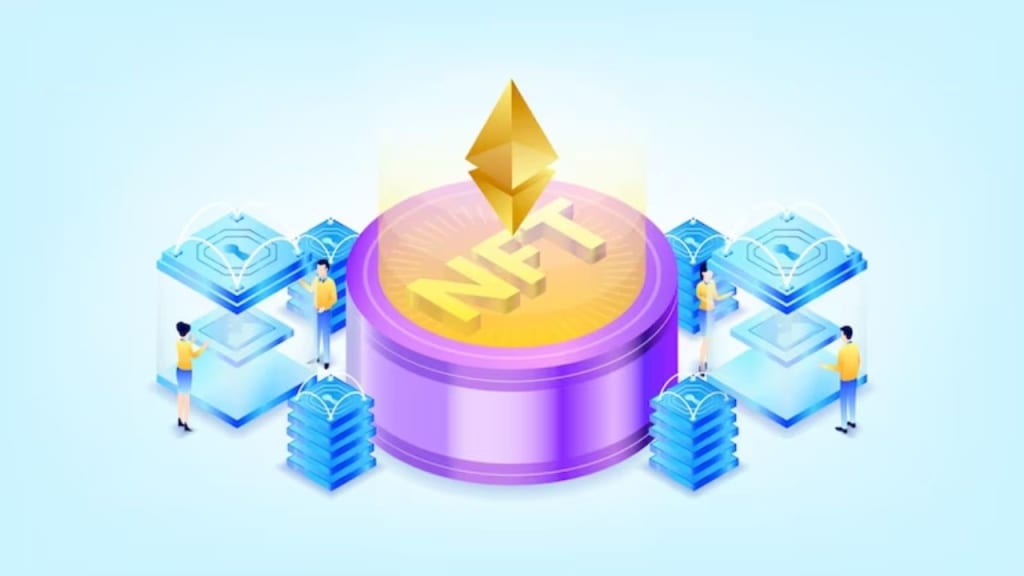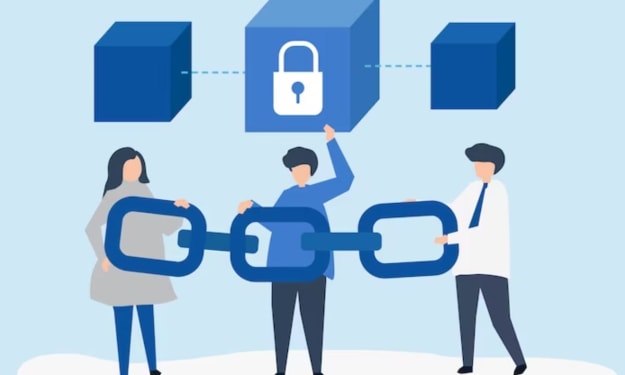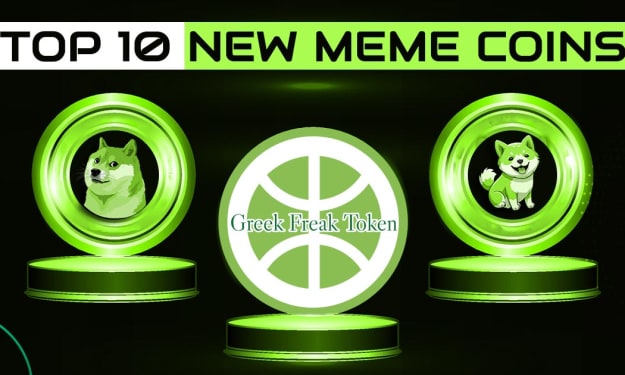The Rise of NFT Development Firms: Revolutionizing Digital Assets
Unlocking New Revenue Streams through NFT Development

In recent times, there has been a significant surge in interest surrounding NFT (Non-Fungible Token) development firms. NFTs have gained immense popularity as a means of buying, selling, and owning unique digital assets, including artwork, collectibles, virtual real estate, and more. As a result, the demand for NFT development firms has skyrocketed.
NFT development firms specialize in creating and implementing the technology infrastructure required for the creation, sale, and management of NFTs. These firms employ blockchain technology, typically on platforms like Ethereum, to ensure the authenticity, scarcity, and traceability of digital assets.
One of the key reasons for the growing interest in NFT development firms is the potential for artists, creators, and businesses to monetize their digital creations. NFTs provide a way for creators to establish ownership and sell their unique digital works directly to buyers, without intermediaries. This has opened up new opportunities for artists, musicians, and other creative professionals to reach a global audience and generate income from their digital creations.
Furthermore, NFTs have captured the attention of collectors and investors who see them as a novel and potentially lucrative asset class. The ability to prove ownership and the scarcity of certain digital assets make NFTs attractive to those seeking to invest in unique and rare items. This interest has led to significant growth in the market for NFTs, and consequently, a surge in demand for NFT development firms to support this ecosystem.
NFT development firms offer a range of services, including smart contract development, tokenization of assets, marketplace creation, and integration with various blockchain networks. They work closely with artists, content creators, and businesses to understand their specific needs and develop tailored solutions to meet their requirements.
As the interest in NFTs continues to rise, it is expected that the demand for NFT development firms will also continue to grow. This sector presents a promising opportunity for developers, designers, and blockchain experts to contribute to the evolving landscape of digital ownership and unique asset trading.
Role of NFT development firms in the NFT Ecosystem
NFT development firms play a crucial role in the NFT ecosystem by providing the necessary technical expertise and infrastructure to create, deploy, and manage NFTs. Here are some key roles these firms undertake:
- Smart Contract Development: NFT development firms specialize in creating smart contracts on blockchain platforms like Ethereum. These smart contracts define the rules and logic behind NFTs, including ownership, transferability, royalties, and other specific attributes. Skilled developers write secure and efficient smart contracts that ensure the integrity and functionality of NFTs.
- Tokenization of Assets: NFT development firms enable the tokenization of various digital and physical assets. They work closely with artists, creators, and businesses to convert their unique works, such as art, music, videos, virtual real estate, or even real-world assets like real estate or collectibles, into NFTs. This process involves creating metadata, defining the asset's properties, and associating it with a unique token.
- Marketplace Creation: NFT development firms build and deploy NFT marketplaces where users can discover, buy, sell, and trade NFTs. These marketplaces provide an interface for users to browse and search for NFTs, view their details, and engage in transactions securely. The development firms ensure smooth functionality, user-friendly interfaces, and seamless integration with blockchain networks.
- Integration with Blockchain Networks: NFT development firms connect their platforms and marketplaces with underlying blockchain networks. They establish the necessary integration with blockchain protocols to ensure the immutability, security, and transparency of NFT transactions. This involves working with blockchain APIs, wallets, and other infrastructure components.
- Consultation and Advisory Services: NFT development firms offer consultation and advisory services to artists, creators, and businesses entering the NFT space. They guide clients on best practices, legal considerations, and market trends related to NFTs. They assist in determining the right strategies for tokenizing assets, pricing NFTs, marketing, and establishing partnerships within the ecosystem.
- Ongoing Support and Maintenance: NFT development firms provide ongoing support and maintenance for their platforms, marketplaces, and smart contracts. They ensure that the infrastructure remains secure, scalable, and up-to-date with the latest developments in blockchain technology. They address any technical issues, implement upgrades, and incorporate user feedback to improve the overall user experience.
Overall, NFT development firms are instrumental in facilitating the creation, management, and trading of NFTs. They empower artists, creators, and businesses to embrace this innovative technology, unlock new revenue streams, and participate in the growing NFT ecosystem.
Services offered by NFT development firms
NFT development firms offer a range of services to support the creation, implementation, and management of NFTs. Here are some common services provided by these firms:
- Smart Contract Development: NFT development firms specialize in creating and deploying smart contracts on blockchain platforms. They develop secure and efficient smart contracts that define the rules and functionality of NFTs, including ownership, transferability, royalties, and other specific attributes.
- Tokenization of Assets: These firms assist artists, creators, and businesses in tokenizing their digital or physical assets as NFTs. They work closely with clients to convert artworks, music, videos, virtual real estate, or other unique assets into NFTs. This process involves creating metadata, defining the asset's characteristics, and associating it with a unique token on the blockchain.
- NFT Marketplace Development: NFT development firms build customized NFT marketplaces where users can discover, buy, sell, and trade NFTs. These marketplaces provide a user-friendly interface, search, and filtering options, and secure transaction capabilities. They can also incorporate features like auctions, bidding systems, and curated collections to enhance the user experience.
- Integration with Blockchain Networks: These firms ensure seamless integration of their platforms and marketplaces with underlying blockchain networks. They connect their systems with the blockchain infrastructure, allowing users to interact with NFTs securely and transparently. This involves integrating with blockchain protocols, wallets, and APIs to facilitate smooth transactions and asset management.
- Metadata and Content Management: NFT development firms assist in managing metadata associated with NFTs. They help clients define and structure metadata, including details about the asset, provenance, artist information, and other relevant attributes. This ensures accurate and comprehensive information about NFTs, enhancing their value and authenticity.
- Consultation and Advisory Services: NFT development firms provide consultation and advisory services to guide clients through the NFT ecosystem. They offer insights into market trends, best practices, legal considerations, and pricing strategies. They assist in determining the optimal approach for NFT creation, marketing, and maximizing value within the evolving NFT landscape.
- Security and Auditing: These firms prioritize security and conduct audits to ensure the robustness and reliability of their platforms, smart contracts, and marketplaces. They implement best security practices, perform code reviews, and conduct vulnerability assessments to protect users' assets and data from potential threats.
- Ongoing Support and Maintenance: NFT development firms offer ongoing support and maintenance services for their platforms and marketplaces. They address technical issues, implement upgrades, and incorporate user feedback to continually enhance the functionality, scalability, and user experience of their systems.
These services provided by NFT development firms enable artists, creators, and businesses to navigate the NFT ecosystem, tokenize their assets, and participate in the growing market for unique digital assets.
Importance of NFT Development Firms
NFT development company play a crucial role in the NFT ecosystem, and their importance stems from several key factors:
- Technical Expertise: NFT development firms possess the technical expertise required to navigate the complex landscape of blockchain technology and smart contract development. They understand the intricacies of different blockchain platforms, such as Ethereum, and have the skills to create secure, efficient, and reliable smart contracts for NFTs. Their expertise ensures the smooth functioning of NFT marketplaces and the integrity of digital assets.
- Infrastructure Development: These firms build the necessary infrastructure for the creation, deployment, and management of NFTs. They provide the tools, frameworks, and platforms that enable artists, creators, and businesses to tokenize their assets and participate in the NFT market. By developing user-friendly interfaces, integrating with blockchain networks, and ensuring seamless functionality, they facilitate the accessibility and usability of NFTs.
- Market Opportunity: NFT development firms enable artists, creators, and businesses to tap into the expanding market for unique digital assets. They empower individuals and organizations to monetize their digital creations by tokenizing them as NFTs and reaching a global audience. By providing the technical solutions and marketplaces needed to facilitate NFT transactions, these firms open up new revenue streams and opportunities for the creative community.
- Authenticity and Provenance: NFT development firms contribute to the establishment of authenticity and provenance in the digital art and collectibles market. They utilize blockchain technology to ensure the immutability and transparency of NFT transactions. This enables buyers to verify the ownership and authenticity of the digital assets they acquire, providing confidence and trust in the NFT ecosystem.
- Customization and Tailored Solutions: Each artist, creator, or business may have specific requirements when it comes to NFTs. NFT development firms offer customization and tailored solutions to meet these unique needs. Whether it's implementing specific royalty structures, integrating with external services, or creating specialized features within NFT marketplaces, these firms can adapt and provide personalized solutions.
- Consultation and Guidance: NFT development firms provide consultation and guidance to navigate the evolving landscape of NFTs. They offer insights into market trends, pricing strategies, legal considerations, and best practices. This guidance helps clients make informed decisions and optimize their participation in the NFT ecosystem.
- Security and Auditing: Ensuring the security of NFTs and the underlying infrastructure is crucial. NFT development firms prioritize security measures and conduct audits to identify and address vulnerabilities. By implementing robust security practices, they safeguard users' assets and data, building trust within the NFT community.
In summary, NFT development firms bring technical expertise, infrastructure, and tailored solutions to the NFT ecosystem. They empower artists, creators, and businesses to leverage blockchain technology, tokenize their assets, and participate in the growing market for unique digital assets. Their role is vital in establishing authenticity, facilitating transactions, and driving the adoption of NFTs.
Key Considerations for Choosing an NFT Development Firm
When choosing an NFT development firm, there are several key considerations to keep in mind:
- Expertise and Experience: Look for a firm with a proven track record and extensive experience in NFT development. Evaluate their technical expertise in blockchain technology, smart contract development, and NFT marketplace creation. Consider their past projects, client testimonials, and industry reputation to gauge their capabilities.
- Customization and Flexibility: Assess whether the firm offers customization options to meet your specific needs. Each artist, creator, or business may have unique requirements for their NFTs. Ensure that the development firm can tailor their solutions to align with your vision and objectives. This may include customizable smart contracts, specialized features, or integration with external services.
- Security Measures: Security is paramount in the NFT ecosystem. Inquire about the firm's security practices and measures. They should follow industry best practices to protect against potential threats, conduct regular audits, and implement robust security protocols. Ensure that they prioritize the safety of your assets and the privacy of user data.
- Scalability and Performance: Consider the firm's ability to handle scalability and provide high-performance solutions. As the demand for NFTs grows, it is essential that the development firm's infrastructure and technology can handle increased transaction volumes and user activity. They should be able to offer scalable solutions that ensure the smooth functioning of NFT marketplaces even during peak periods.
- Integration with Blockchain Networks: Verify the firm's expertise in integrating with different blockchain networks. They should be well-versed in the specific protocols and standards required for seamless interaction with blockchain platforms like Ethereum. This ensures compatibility, interoperability, and adherence to industry standards.
- Consultation and Support: Evaluate the firm's level of consultation and support. They should be responsive, communicative, and able to guide you through the complexities of the NFT ecosystem. Look for a firm that offers ongoing support, maintenance services, and consultation on market trends, pricing strategies, and legal considerations.
- Reputation and Trust: Research the firm's reputation within the industry and its standing in the NFT community. Read reviews, seek recommendations, and assess their credibility. Consider firms that have established trust and have a strong presence in the NFT development space.
- Pricing and Contracts: Discuss pricing models, project timelines, and contractual agreements with the development firm. Ensure that their pricing is transparent and aligns with the value they provide. Review the terms and conditions of the contract, including intellectual property rights, ownership, and potential future support requirements.
- Innovation and Future-Readiness: Consider whether the firm demonstrates a commitment to innovation and staying up-to-date with the latest developments in the NFT space. NFTs are rapidly evolving, and you want a development partner that can adapt to emerging trends and technologies to ensure your long-term success.
By considering these key factors, you can make an informed decision when choosing an NFT development firm that aligns with your specific requirements and goals.
NFT Development Process
The NFT development process involves several steps to create, deploy, and manage non-fungible tokens (NFTs). Here is a general overview of the process:
- Conceptualization: Begin by conceptualizing your NFT project. Define the purpose, scope, and characteristics of the digital asset you want to tokenize as an NFT. Determine the specific attributes, metadata, and functionalities you want to associate with your NFT.
- Platform Selection: Choose a suitable blockchain platform to create and deploy your NFT. Ethereum is a popular choice due to its established infrastructure and support for NFT standards like ERC-721 and ERC-1155. Consider factors like scalability, gas fees, and compatibility with your project's requirements.
- Smart Contract Development: Develop a smart contract that will govern the behavior and properties of your NFT. This involves writing code to define the token structure, ownership, transferability, royalties, and other desired features. Ensure the smart contract is secure, efficient, and adheres to industry best practices.
- Tokenization: Convert your digital or physical asset into an NFT by associating it with a unique token on the blockchain. This process involves minting the NFT, assigning metadata (e.g., title, description, image, creator information), and linking it to the corresponding digital asset.
- Testing and Auditing: Thoroughly test the smart contract and the minting process to ensure functionality, security, and compliance with your requirements. Conduct code reviews and security audits to identify and address any vulnerabilities or issues.
- Marketplace Integration: If you intend to list and sell your NFT on a marketplace, integrate your smart contract with the selected NFT marketplace. This typically involves connecting your wallet, setting pricing parameters, and ensuring compatibility with the marketplace's standards and protocols.
- Marketing and Promotion: Develop a marketing strategy to promote your NFT and generate interest from potential buyers. Leverage social media, online communities, and other platforms to create awareness, showcase the uniqueness of your NFT, and engage with your target audience.
- Launch and Distribution: Once your NFT is ready, launch it on the marketplace or distribute it directly to buyers. Set a pricing strategy, determine any royalties or licensing terms, and make the NFT available for purchase or auction based on your preferred distribution model.
- Ongoing Management: Continuously manage and maintain your NFT. Monitor its performance, respond to inquiries, and address any technical issues that may arise. Consider updating the metadata, engaging with the NFT community, and exploring opportunities for collaborations or partnerships.
Throughout the NFT development process, it is important to consider legal and regulatory aspects, such as copyright, intellectual property rights, and compliance with local laws. Seek legal advice if needed to ensure your NFT project adheres to relevant regulations.
Remember that the specific steps and details of the NFT development process may vary based on your project requirements, the chosen blockchain platform, and the NFT marketplace you intend to utilize.
Collaborating with NFT Development Firms
Collaborating with NFT development firms can be a strategic decision to leverage their expertise and resources in creating, deploying, and managing your NFT project. Here are some considerations for effectively collaborating with NFT development firms:
- Clearly Define Your Project: Before approaching an NFT development firm, clearly define your project's goals, objectives, and requirements. Articulate the scope, desired features, and functionalities of your NFT project. This will help the development firm understand your vision and deliver tailored solutions.
- Research and Select the Right Firm: Conduct thorough research to identify reputable NFT development firms with a track record of successful projects and positive client feedback. Consider their expertise, experience, and alignment with your project's needs. Look for firms that have worked on similar projects or have domain knowledge in your specific industry.
- Communicate Expectations: Communicate your expectations to the development firm. Discuss project timelines, deliverables, and milestones. Set realistic goals and establish open lines of communication to ensure a smooth collaboration throughout the development process.
- Foster a Collaborative Environment: Treat the NFT development firm as a trusted partner and foster a collaborative environment. Encourage open dialogue, active participation, and knowledge sharing. Emphasize the importance of regular updates, feedback sessions, and progress reports to stay informed about the project's status.
- Engage in Requirement Gathering: Work closely with the development firm to gather and document the project requirements in detail. Provide comprehensive information about the digital asset you want to tokenize, including metadata, attributes, and any specific functionalities you envision. Collaborate on refining the requirements and seek the firm's input to enhance the project's feasibility and success.
- Iterative Development Approach: Consider adopting an iterative development approach, such as the Agile methodology. This allows for incremental progress, frequent feedback loops, and flexibility in adjusting the project based on evolving needs. Collaborate with the development firm to prioritize features, plan sprints, and monitor progress throughout the development lifecycle.
- Regular Communication and Updates: Maintain regular communication with the NFT development firm to stay informed about the project's progress. Schedule regular meetings, video conferences, or use project management tools to facilitate collaboration and address any concerns or questions that may arise.
- Clarify Ownership and Intellectual Property: Discuss ownership and intellectual property rights related to the NFT project. Clarify the terms and agreements surrounding the project's assets, licensing, royalties, and any future usage rights. Consider seeking legal advice to ensure a clear understanding and protection of your intellectual property.
- Post-Development Support: Discuss post-development support with the firm. Determine their availability for ongoing maintenance, bug fixes, and potential upgrades. Understand their support mechanisms, response times, and any associated costs to ensure seamless operations and timely resolutions to any issues that may arise.
- Legal Considerations: Address legal considerations, such as compliance with copyright laws and intellectual property rights. Collaborate with the development firm to ensure your NFT project adheres to relevant legal requirements and obtain any necessary permissions or licenses.
Remember that effective collaboration with an NFT development agency is a partnership. Maintain open lines of communication, foster transparency, and embrace a collaborative mindset to maximize the success of your NFT project.
Conclusion
In conclusion, the growing interest in NFT development firms highlights their significance in the NFT ecosystem. These firms offer a wide range of services, including smart contract development, asset tokenization, NFT marketplace creation, integration with blockchain networks, metadata management, consultation, security auditing, and ongoing support. By leveraging their technical expertise and industry knowledge, artists, creators, and businesses can navigate the complex world of NFTs more effectively.
NFT development firms play a vital role in bringing digital assets to the blockchain, establishing authenticity and provenance, and facilitating transactions in the NFT market. They provide the necessary infrastructure, customization options, and consultation services to help clients maximize the value and potential of their NFT projects. Collaboration with these firms allows for the creation of tailored solutions, seamless integration with blockchain networks, and access to a wider audience through established NFT marketplaces.
When choosing an NFT development firm, it is crucial to consider factors such as expertise, customization capabilities, security measures, scalability, reputation, pricing, and future readiness. By carefully evaluating these considerations, individuals and businesses can make informed decisions and select a reliable and suitable partner for their NFT development needs.
Overall, NFT development firms play a pivotal role in driving the growth and adoption of NFTs by providing the technical solutions, expertise, and support necessary to navigate the evolving landscape of unique digital assets. With their assistance, creators can tokenize their art, music, videos, and other digital assets, opening up new avenues for monetization and engagement in the digital economy.
About the Creator
Annabelle Darcie
I am an enthusiastic content writer currently involved in NFT marketplace development. I am thrilled to have the opportunity to support and accompany many individuals on their entrepreneurial journey.






Comments
There are no comments for this story
Be the first to respond and start the conversation.